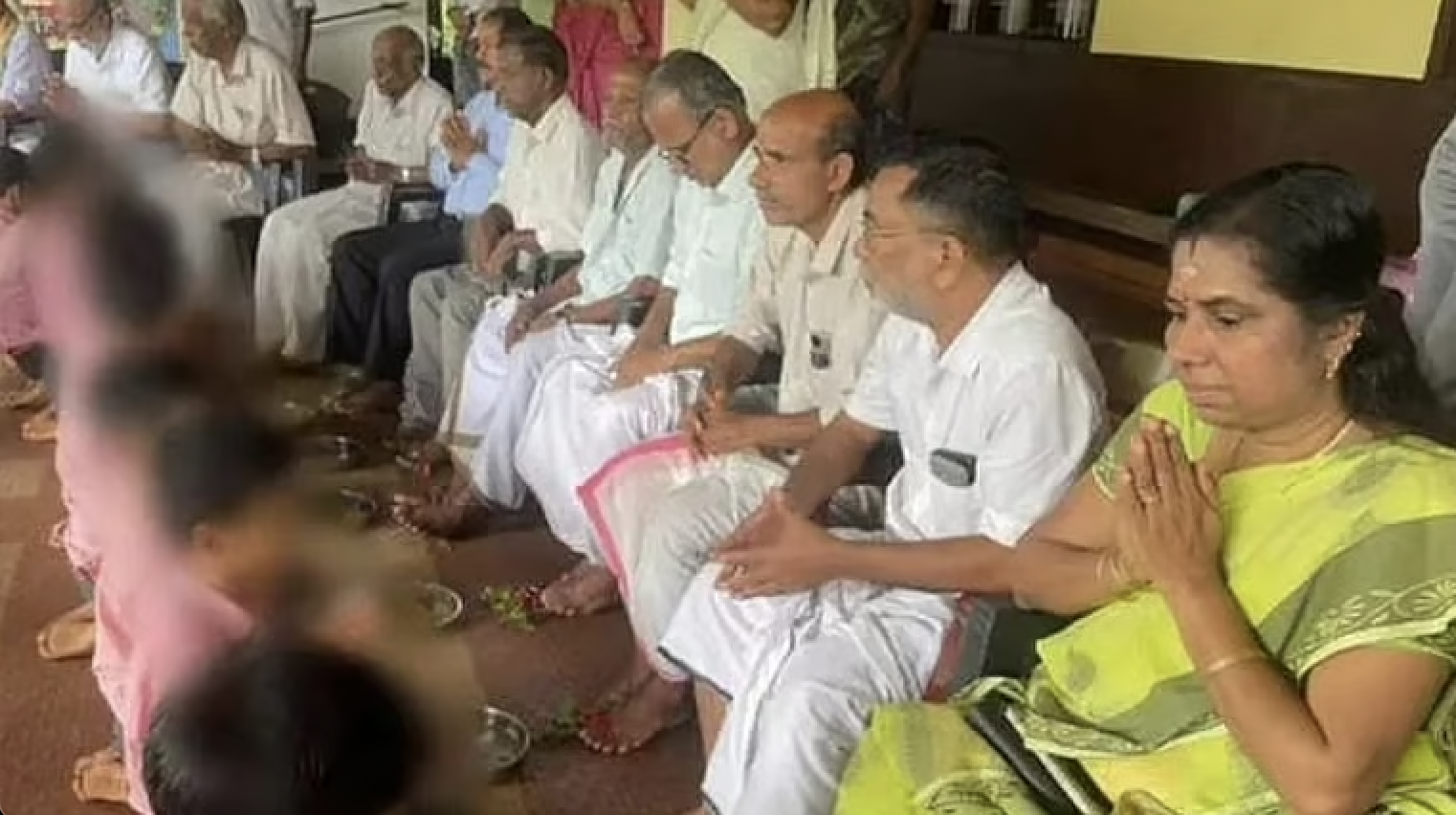
By Abhijay A
Recently, the Kerala State Commission for Protection of Child Rights (KSCPCR) took suo motu cognisance of an event in several schools affiliated with the Central Board of Secondary Education (CBSE) across the state. As part of the so-called “guru pada pooja” — a ritual promoted under the guise of cultural respect — students were made to wash the feet of retired teachers in public.
These events, held in schools affiliated with the Rashtriya Swayamsevak Sangh (RSS)-backed Vidya Bharati network, have triggered public outrage and a renewed debate over what values are being imparted in India’s classrooms.
This is not an isolated event. It is part of a larger ideological project that seeks to redefine the purpose of education in India — from nurturing scientific temper, free-thinking, and democratic values to conditioning young minds into hierarchies of obedience and servitude. And when such acts are legitimised in schools, the foundational values of a democratic republic come under strain.
The Sangh’s cultural expansion in Kerala
This act occurred in Kerala and is not incidental. Contrary to its popular image as a progressive, left-leaning state, Kerala today has the second highest number of RSS shakhas in the country — more than 5,000 — just below Uttar Pradesh, even surpassing Madhya Pradesh, Maharashtra, and Gujarat, all much larger and ruled by the Bharatiya Janata Party (BJP).
With a population of around 3.61 crore, the per capita presence of RSS shakhas in Kerala reflects not just organisational muscle, but a deep and sustained cultural intervention.
This ideological influence has not remained confined to shakhas or street corners. It has now entered classrooms and even rituals of schooling. Increasingly, the attempt is not just to educate children, but to socialise them into a dominant-caste, brahmanical, patriarchal, centuries-old social order.
This context should also be noted in accordance with comments made by BJP’s Member of Parliament (MP) Suresh Gopi, now a Union Minister, who publicly stated that he wished to be reborn as a Brahmin, describing those who wear the sacred thread as “Gods.” These comments are not cultural observations; they reflect a worldview in which caste is not just a lived reality but a social hierarchy.
When such ideas are voiced by union ministers and echoed in classroom rituals, we must ask: what kind of citizenship are we cultivating?
This story was originally published in thenewsminute.com. Read the full story here.






